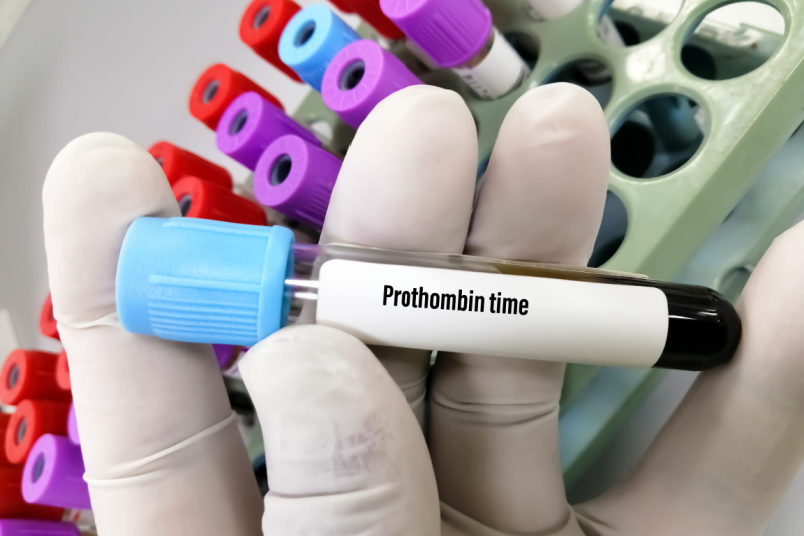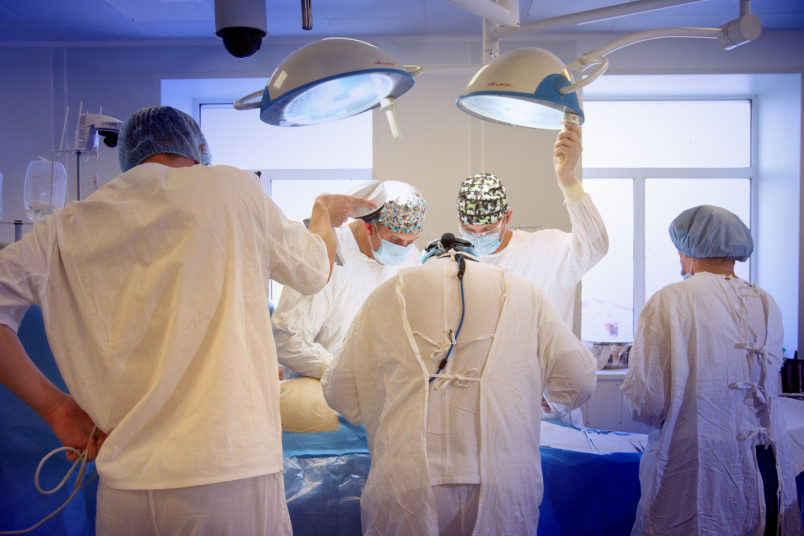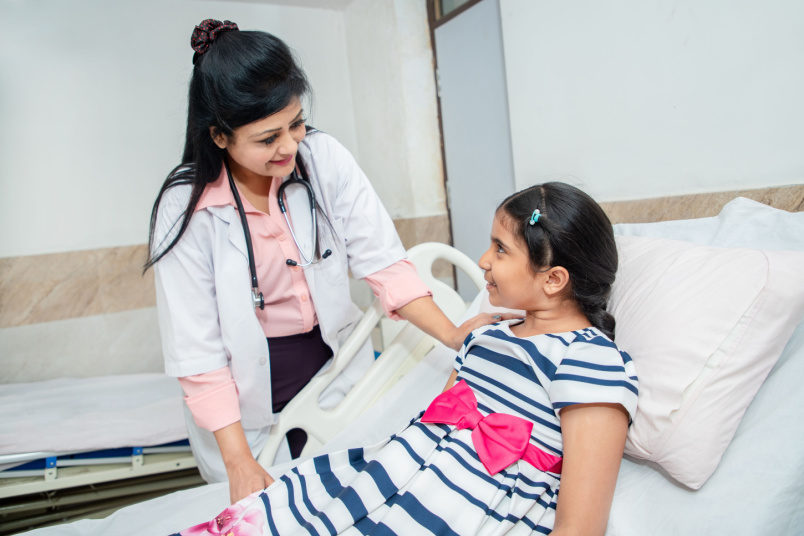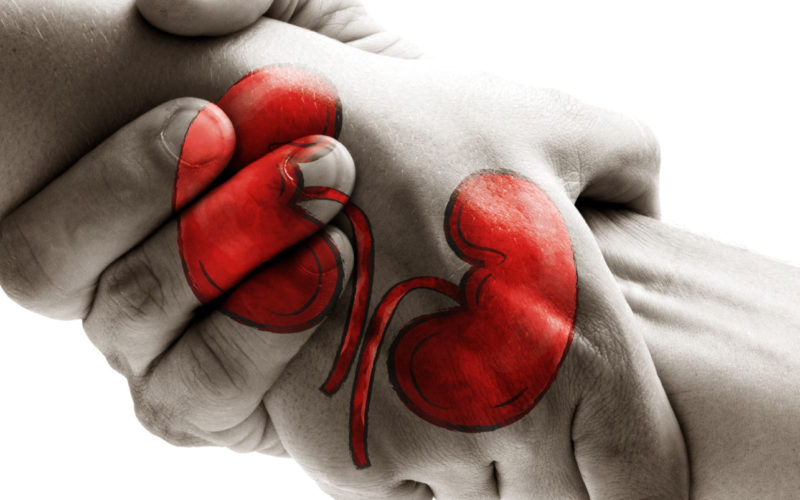A child who suffers from kidney failure or chronic kidney disease (CKD) exhibits different symptoms from those of an adult. The abnormalities in the kidneys, impact a child in a negative way by affecting his or her overall growth, along with bone and nerve strength. It thus, becomes all the more important as a parent to see to it that your child receives immediate medical aid for the kidney ailment that he/she has. While contemplating on the various surgical options, including a kidney transplant may sound scary, the outcomes and benefits are very evident. This blog talks about kidney transplant procedure in children in a detailed manner including its types, preparation before and after the surgery and living a disease-free life thereafter.
What is kidney transplant?

A kidney transplant is a surgical procedure in which a healthy kidney from another person (donor) is placed into someone (recipient) with severe kidney problems. The donor may be of 2 kinds:
- Deceased donor: This type of organ donor is one who has just died. This is known as a deceased donor transplant.
- Living donor: This type includes family members or even unrelated people who make a good match and are able to donate one of their kidneys. This is known as a living transplant where the donor is still alive but can survive easily without any problems even with one kidney.
Need for kidney transplant

Kidney transplant is currently the best treatment option available for children with established renal failure (ERF), which is the end stage of CKD. CKD is a life-long illness, requiring immediate medical intervention. In such a situation, the kidneys stop functioning as well as they should. This condition often requires that the child undergo regular dialysis. To overcome this problem, a kidney transplant is preferred.
Some of the other conditions for which children may require a kidney transplant includes:
- Birth defects: One of the most common causes for kidney failure in children from birth till age 4.
- Hereditary diseases, systemic diseases, and nephrotic syndrome: These make up for the most common causes of kidney failure in children between ages 5 and 15.
- Diseases affecting blood vessels (glomeruli) in kidneys: This reason accounts for kidney failure in children aged 15 to 19 years.
Preparing for kidney transplant

Before entering your child’s name under the transplant waiting list, it is vital for your child to undergo an extensive evaluation. This includes blood tests and diagnostic tests of the child. Let us look into each segment of this evaluation one by one:
- Blood tests:
Blood tests are usually done so that the chances of donor kidney being rejected is minimized. Some of these blood tests include:
- Blood chemistries: This includes tests for serum creatinine, electrolytes such as sodium and potassium, liver function tests, and cholesterol.
- Clotting studies:Includes prothrombin time (PT) and partial thromboplastin time (PTT), both of which measures the time taken for the blood to clot.Apart from the above tests, a few other tests are run to improve the chances that the donor organ does not get rejected. These include the following tests:
- Blood type testing:Human blood groups are of 8 types: type A+, A-, B+, B-, AB+, AB-, O+, or O-. It is important that while receiving a transfusion, the blood received must be compatible with your child’s. A mismatch in blood groups can lead to an allergic reaction. A similar kind of reaction will be seen if the blood contained in the donor organ enters your child’s body during a transplant. To avoid this allergic reaction, it is important to check for matching blood types of your child and the donor.
- Human leukocyte antigens (HLA) and panel reactive antibody (PRA):Both these tests are required for a successful kidney transplant as they check for antibodies in your child’s blood. Antibodies are produced by the immune system in response to a foreign substance and will try to attack the transplanted organ. Children who undergo a transplant require medications that decrease this immune response. Usually, a higher PRA indicates that the transplanted organ will most likely get rejected.
- Viral studies:These tests are done to determine if your child has antibodies to viruses that can result in the transplanted kidney being rejected, such as cytomegalovirus (CMV). This test is also done for many other infectious diseases such as HIV and hepatitis.
- Diagnostic tests:
Extensive diagnostic tests are done to understand your child’s complete health status. Some of these tests are:
- Kidney ultrasound:This is a non-invasive test that makes use of a probe (transducer) which is passed over the kidneys from the outside of the body. Sound waves created by the probe, bounce off the kidneys and are transmitted as a picture onto a video screen. With the help of this test, the size and shape of the kidneys can be determined. It can also detect if there is a mass, cyst, kidney stone, or any other blockage or abnormality in the kidneys.
- Kidney biopsy:A biopsy entails removing tissue samples from the kidney, using a fine needle and examining the same under a microscope.
- Intravenous pyelogram (IVP):This includes a series of X-rays of the kidneys, ureters, and bladder. A contrast dye is injected into the vein to locate any tumors, kidney stones, or any other abnormalities and to assess renal blood flow.
Kidney transplant surgery

The kidney transplant surgery for a child takes place in a pediatric renal unit and is done by a transplant surgeon. Before the surgery, your child will be moved into an operating theatre and sedated under general anesthesia. Some medications such as antibiotics (to prevent infection) and pain medicines (to control post-surgical pain) will be given to the child.
During the procedure, a cut is made to the abdomen and the new kidney will be placed lower down in the child’s abdomen either to one side or in the middle. Then the kidney’s blood vessels will be joined with the child’s large blood vessels, to enable the blood to flow in and out. Also, the new ureter will be joined to the child’s bladder so that the urine can flow from his or her kidney to the bladder easily.
Life after the operation

Post recovery care is important to enable the child to recuperate faster. After the transplant is done, your child may require a hospital stay for about a week’s time. During the stay, a series of blood tests may be done to check on the child’s new kidney. For managing pain, medications may be given to ease the child. Sometimes, some children may require to undergo brief dialysis post-transplant, before their new kidney starts working fully. This is generally the case if the child has received the kidney from a deceased donor.
After discharge from the hospital, some measures need to be followed to keep your child protected from infections. Limit your child’s activities after the operation until the surgical area is completely healed. Refrain your child from engaging in any sports activities or rough play until the doctor permits. The surgery spot should be kept clean and dry at all times to prevent infections. Do not allow your child to play with pets as pets carry germs, exposing your child to infections.
With the option of kidney transplant now available for your child, he or she can hope for a better life, devoid of dialysis. It is imperative that you support your child in all ways before and after the kidney transplant surgery. Enable your child to know what he or she is about to experience so that any fear associated with the procedure is removed. After all, living with a transplant is a lifelong process.
At NU Hospitals, located in Bangalore, India, your child can undergo kidney transplant surgery. With the best facilities and latest medical equipment in place, NU hospitals boast of providing a hassle-free kidney transplantation experience for your child. Meet the expert nephrologists at NU Hospitals today and allay all your doubts and fears concerning the procedure.
References.
Author: Dr. Nitin Nayak

